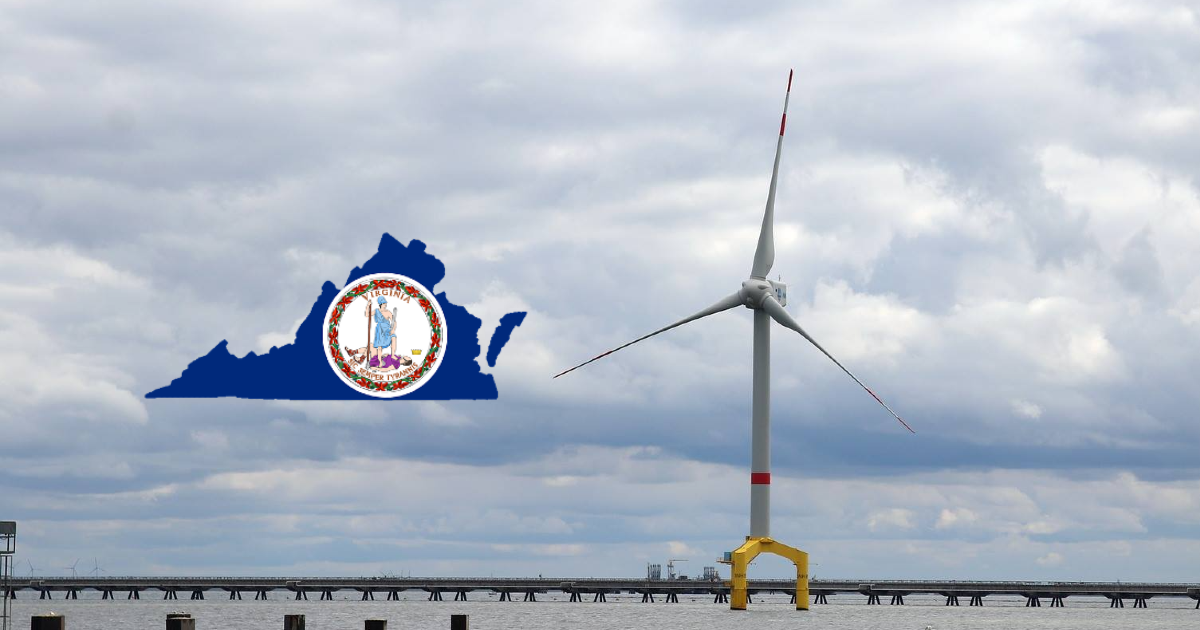
“The Department of Energy, in consultation with the Department of Environmental Quality, shall analyze the life cycle of renewable energy facilities, including solar, wind, and battery storage components. The analysis shall assess the (i) feasibility, costs, recycling and salvage opportunities, waste strategies, and liability for the decommissioning of materials; (ii) potential impacts of underground infrastructure post-decommissioning; and (iii) potential impacts of the life cycle on farming, forestry, and sensitive wetlands.”
Now what science-denying Republican tool of the fossil fuel industry put in that silly bill? No, wait: Senate Bill 499 is sponsored by a Democratic state senator, Lynwood Lewis from the Eastern Shore. (And Senator, you should amend the bill to cover the life cycle impacts of offshore wind on our ocean, and those retirement costs.)
Are Democrats getting shaky in their firm religious faith that an ocean full of turbines and whole counties plowed under for solar panels will Save Us from Doom? Would a sufficiently stark analysis of life cycle costs have them pining again for a nice gas plant? Wait, there is more.
There are these two companion bills, from two Democrats even more deeply connected to the Myth of Net Zero. House Bill 414 and Senate Bill 280 both “Require each investor-owned electric utility and each electric cooperative utility to file a plan for monitoring and reporting electric service reliability and an annual electric service reliability report with the State Corporation Commission for approval.”
Those bills were probably filed in response to constituent complaints following weather-related power outages. But as they say, be careful what you ask for. What happened in Texas last winter, and in the United Kingdom Europe late last year, were massive weather-related reliability outages complicated by over reliance on renewable sources.
An honest appraisal on lifecycle costs of renewable energy projects and their intermittency will not be good news for advocates of the Virginia Clean Economy Act and other legislated efforts to eliminate the inexpensive, reliable fossil fuels still crucial to our daily lives.
This may indeed be the General Assembly session that backs off the massive, expensive and immutable energy mandates imposed by VCEA in that famous 2020 legislation. If so, the Republican-sponsored repeal bills (ink still drying) probably won’t be the vehicles.
Guess who else is sending clear warning signals that the solar-wind-battery vision of the future is actually dystopian. Dominion Energy Virginia included the following warnings in the most recent update to its integrated resource plan, the same plan which eliminated certain proposed new natural gas generation (emphasis added)
“The SCC directed the Company to consider market purchases during the winter from the PJM wholesale market or from merchant generators located in the DOM Zone. The Company is concerned that overreliance on the market for purchases could present issues if other states within PJM build significant amounts of solar generation and those zones expect the market to provide energy at the same time the Company is expecting that energy (e.g., extended cloudy winter periods). If that were to become reality, either energy shortages or extreme price spikes would occur.
And elsewhere:
“…when the Company adds increasing amounts of solar resources to the system, this will result in intra-day, intra-month, and seasonal challenges posed by the interplay of solar generation and load. These challenges could expand as neighboring states increase the amount of renewable energy generation on their systems, potentially leading to higher peak prices and a reduction in the level of imports available, similar to what happened during the Texas power crisis of February 2021.“
The final clue, and frankly the biggest clue, that change is in the offing was provided right at the end of its term by the outgoing administration of Governor Ralph Northam (D), who pushed and signed VCEA. It produced a report on how Virginia can best meet the goal of ending the use of fossil fuels, which included the counterintuitive advice to keep natural gas around.
The report sparked a story in the green energy cheerleader publication Virginia Mercury.
“The 2045 carbon-free electricity generation goal can be met through existing natural gas infrastructure, existing nuclear energy facilities (with renewed permits) and new renewable energy investments,” wrote Secretary of Commerce and Trade Brian Ball and Secretary of Natural and Historic Resources Ann Jennings (emphasis theirs). “A moratorium on new carbon-emitting generating units is not required to meet clean energy goals…
“Among the provisions of the VCEA that the Weldon Cooper study found will likely increase ratepayer costs are the law’s mandates for Dominion and Appalachian Power to propose large quantities of solar, wind and storage. The researchers’ modeling concluded that those mandates could cost ratepayers more than $250 million per year by 2035 and $450 million per year by 2040 compared to a “least-cost” scenario. Wind and storage in particular were found to be more expensive than other options like solar.”
The numbers are somewhat different, but the conclusion is absolutely the same one that has concerned many of us for two years. That is the same warning of unnecessary high consumer cost. Clean energy advocates have accused us of falsehood, political motives, exaggeration and (of course) science denial. Then an analysis conducted by their friends concurs.
The 2022 energy regulation bills filed so far are piling up, and more could come in by Friday. Stay tuned. The public silence on these issues so far doesn’t mean things are not moving around in the dark. The course reversal may already be underway.
- Trump’s Energy Promises Face Hurdles in Anti-Hydrocarbon Virginia - November 20, 2024
- No, RTD, Hurricane Helene Not Proof of ‘Climate Change’ - October 3, 2024
- A Transparent Effort to Increase General Assembly Authority to Eliminate Hydrocarbon Fuels - September 26, 2024

Pingback: Bills Reversing Green New Deal Advance, Stutter | Bacon's Rebellion